How to Rule the World After Bush
How has the Bush administration changed the world economically, and what it will mean for the next administration? Also, if Bush-style "imperial globalization" is rejected in January, what will American ruling elites try to turn to -- Clinton-style economic globalization?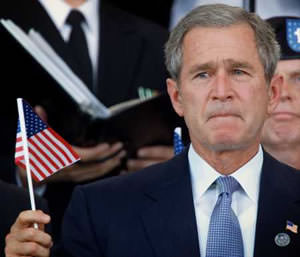
Mark EnglerEditor’s note: The introduction below, by Tom Engelhardt, and the essay by Mark Engler were originally published on TomDispatch.com.
A mere eight months to go until George W. Bush and Dick Cheney leave office — though, given the cast of characters, it could seem like a lifetime. Still, it’s a reasonable moment to begin to look back over the last years — and also toward the post-Bush era. What a crater we’ll have to climb out of by then!
My last post, “Kiss American Security Goodbye,” was meant to mark the beginning of what will, over the coming months, be a number of Bush legacy pieces at Tomdispatch. So consider that series officially inaugurated by Foreign Policy in Focus analyst Mark Engler, who has just authored a new book that couldn’t be more relevant to our looming moment of transition: How to Rule the World: The Coming Battle Over the Global Economy.
The question Engler is curious to have answered is this: If Bush-style “imperial globalization” is rejected in January, what will American ruling elites try to turn to — Clinton-style economic globalization? Certainly, as Engler points out, many in the business and financial communities are now rallying to the Democrats. After all, while John Edwards received the headlines this week for throwing his support behind Barack Obama, that presidential candidate also got the nod from three former Securities and Exchange Commission chairmen — William Donaldson, David Ruder, and Clinton appointee Arthur Levitt Jr. The campaign promptly “released a joint statement by the former SEC chiefs, as well as former Federal Reserve Chairman Paul Volcker, that praised Obama’s ‘positive leadership and judgment’ on economic issues.”
The United States, however, is a very different creature than it was in the confident years when these men rode high. Now, the world is looking at things much differently. Let Engler explain… Tom
Your support matters…Globalizers, Neocons, or…?
The World After Bush
By Mark EnglerPicture January 20, 2009, the day George W. Bush has to vacate the Oval Office.
It’s easy enough to imagine a party marking this fine occasion, with antiwar protestors, civil libertarians, community leaders, environmentalists, health-care advocates, and trade unionists clinking glasses to toast the end of an unfortunate era. Even Americans not normally inclined to political life might be tempted to join the festivities, bringing their own bottles of bubbly to the party. Given that presidential job approval ratings have rarely broken 40% for two years and now remain obdurately around or below 30% — historic lows — it would not surprising if this were a sizeable celebration.
More surprising, however, might be the number of people in the crowd drinking finer brands of champagne. Amid the populist gala, one might well spot figures of high standing in the corporate world, individuals who once would have looked forward to the reign of an MBA president but now believe that neocon bravado is no way to run an empire.
One of the more curious aspects of the Bush years is that the self-proclaimed “uniter” polarized not only American society, but also its business and political elites. These are the types who gather at the annual, ultra-exclusive World Economic Forum in Davos, Switzerland and have their assistants trade business cards for them. Yet, despite their sometime chumminess, these powerful few are now in disagreement over how American power should be shaped in the post-Bush era and increasing numbers of them are jumping ship when it comes to the course the Republicans have chosen to advance these last years. They are now engaged in a debate about how to rule the world.
Don’t think of this as some conspiratorial plot, but as a perfectly commonsensical debate over what policies are in the best interests of those who hire phalanxes of Washington lobbyists and fill the coffers of presidential and congressional campaigns. Many business leaders have fond memories of the “free trade” years of the Clinton administration, when CEO salaries soared and the global influence of multinational corporations surged. Rejecting neoconservative unilateralism, they want to see a renewed focus on American “soft power” and its instruments of economic control, such as the World Bank, International Monetary Fund (IMF), and World Trade Organization (WTO) — the multilateral institutions that formed what was known in international policy circles as “the Washington Consensus.” These corporate globalists are making a bid to control the direction of economic policy under a new Democratic administration.
There is little question that the majority of people on the planet — those who suffered under both the corporate globalization of the Clinton years and the imperial globalization of George W. Bush — deserve something better. However, it is far from certain that social justice advocates who want to encourage a more democratic approach to world affairs and global economic well-being will be able to sway a new administration. On the other hand, the damage inflicted by eight years of neocon rule and the challenges of an increasingly daunting geopolitical scene present a conundrum to the corporate globalizers: Is it even possible to go back to the way things were?
The Revolt of the Corporatists
Throughout their time in office, despite fulsome evidence of failure, George Bush and Dick Cheney have maintained a blithe self-confidence about their ability to successfully promote the interests of the United States, or at least those of their high-rolling “Pioneer”-class donors. Every so often, though, the public receives notice that loyalists are indeed scurrying to abandon the administration’s sinking ship of state. In October 2007, for instance, in a front-page story entitled “GOP Is Losing Grip On Core Business Vote,” the Wall Street Journal reported that the party could be facing a brand crisis as “[s]ome business leaders are drifting away from the party because of the war in Iraq, the growing federal debt and a conservative social agenda they don’t share.”
When it comes to corporate responses to the President’s Global War on Terror, we mostly hear about the likes of Halliburton and Blackwater — companies directly implicated in the invasion and occupation of Iraq, and with the mentality of looters. Such firms have done their best to score quick profits from the military machine. However, there was always a faction of realist, business-oriented Republicans who opposed the invasion from the start, in part because they believed it would negatively impact the U.S. economy. As the administration adventure in Iraq has descended into the morass, the ranks of corporate complainers have only grown.
The “free trade” elite have become particularly upset about the administration’s focus on go-it-alone nationalism and its disregard for multilateral means of securing influence. This belligerent approach to foreign affairs, they believe, has thwarted the advance of corporate globalization. In an April 2006 column in the Washington Post, globalist cheerleader Sebastian Mallaby laid blame for “why globalization has stalled” at the feet of the Bush administration. The White House, Mallaby charged, was unwilling to invest any political capital in the IMF, the World Bank, or the WTO. He wrote:
“Fifteen years ago, there were hopes that the end of Cold War splits would allow international institutions to acquire a new cohesion. But the great powers of today are simply not interested in creating a resilient multilateral system…. The United States remains the only plausible quarterback for the multilateral system. But the Bush administration has alienated too many players to lead the team effectively. Its strident foreign policy started out as an understandable response to the fecklessness of other powers. But unilateralism has tragically backfired, destroying whatever slim chance there might have been of a workable multilateral alternative.”
Frustrated by Bush’s failures, many in the business elite want to return to the softer empire of corporate globalization and, increasingly, they are looking to the Democrats to navigate this return. As a measure of this — the capitalist equivalent of voting with their feet — political analyst Kevin Phillips notes in his new book, Bad Money, that, in 2007, “[h]edge fund employees’ contributions to the Senate Democratic Campaign Committee outnumbered those to its Republican rival by roughly nine to one.”
This quiet revolt of the corporatists is already causing interesting reverberations on the campaign trail. The base of the Democratic Party has clearly rejected the “free trade” version of trickle-down economics, which has done far more to help those hedge-fund managers and private-jet-hopping executives than anyone further down the economic ladder. As a result, both Barack Obama and Hillary Clinton are running as opponents of the North American Free Trade Agreement (NAFTA) and of a newer bilateral trade deal with Colombia, a country in which organizing a union or vocally advocating for human rights can easily cost you your life. The tenor of the current campaign represents a significant shift from the 1990s, when top Democrats were constantly trying to establish their corporate bona fides and “triangulate” their way into conservative economic policy.
Still, both candidates are surrounded by business-friendly advisors whose views fit nicely within an older, pre-Bush administration paradigm of corporate globalization. The tension between the anti-NAFTA activists at the base of the Party and those in the campaign war rooms has resulted in some embarrassing gaffes during the primary contest.
For Hillary Clinton, the most notable involved one of her chief strategists, Mark Penn, a man with a long, nefarious record defending corporate abuses as a Washington lobbyist. As it turned out, Penn’s consulting firm received $300,000 in 2007 to support the “free trade” agreement with Colombia. Even as Clinton was proclaiming her heartfelt opposition to the deal and highlighting the “history of suppression and targeted killings of labor organizers” in that country, a key player in her campaign was charting strategy with Colombian government officials in order to get the pact passed.
The Obama campaign found itself in similar discomfort in February. While the candidate was running in the Ohio primary as an opponent of NAFTA, calling that trade deal a “mistake” that has harmed working people, his senior economic policy adviser, University of Chicago professor Austan Goolsbee, was meeting with Canadian government officials to explain, as a memo by the Canadians reported, that Obama’s charges were merely “political positioning.” Goolsbee quickly claimed that his position had been mischaracterized, but the incident naturally raised questions. Why, for example, had Goolsbee, senior economist to the Democratic Leadership Council, the leading organization on the corporate-friendly rightwing of the party, and a person praised as “a valuable source of free-trade advice over almost a decade,” been positioned to mold Obama’s economic stances in the first place?
If pressure from the base of the party lets up after the elections, it would hardly be surprising to see a victorious candidate revert to Bill Clinton’s corporate model for how to rule the world. However, a return to a pre-Bush-style of international politics may be easier dreamed than done.
The Neocon Paradox
To the chagrin of the “free trade” elite, the market fundamentalist ideas that have dominated international development thinking for at least the last 25 years are now under attack globally. This is largely because the economic prescriptions of deregulation, privitization, open markets, and cuts to social services so often made (and enforced) by the International Monetary Fund and World Bank have proven catastrophic.
In 2003, the United Nations’ Human Development Report (UNHDP) explained that 54 already poor countries had actually grown even poorer during the “free trade” era of the 1990s. The British Guardian summarized well the essence of this report:
“Taking issue with those who have argued that the ‘tough love’ policies of the past two decades have spawned the growth of a new global middle class, the report says the world became ever more divided between the super-rich and the desperately poor. The richest 1% of the world’s population (around 60 million) now receives as much income as the poorest 57%, while the income of the richest 25 million Americans is the equivalent of that of almost 2 billion of the world’s poorest people.”
Such findings led UNDP administrator Mark Malloch Brown, in a remarkably blunt statement, to call for a “guerrilla assault on the Washington Consensus.”
In fact, in 2008, such an assault is already well under way — and Washington is in a far weaker position economically to deal with it. The countries burned by the Asian financial crisis of 1997-98, for instance, are now building up huge currency reserves so they never again have to come begging to the International Monetary Fund (and so suffer diktats from Washington) in times of crisis. Moreover, virtually the whole of Latin America is in revolt. Over 500 million people reside in that region, and over two-thirds of them now live under governments elected since 2000 on mandates to split with “free trade” economics, declare independence from Washington, and pursue policies that actually benefit the poor.
In late April, economist Mark Weisbrot noted that, with so many countries breaking free of its grasp, the IMF, which once dictated economic policy to strapped governments around the world, is now but a shadow of its former self. In the past four years, its loan portfolio has plummeted from $105 billion to less than $10 billion, the bulk of which now goes to just two countries, Turkey and Pakistan. This leaves the U.S. Treasury, which used the body to control foreign economies, with far less power than in past decades. “The IMF’s loss of influence,” Weisbrot writes, “is probably the most important change in the international financial system in more than half a century.”
It is a historic irony that Bush administration neocons, smitten with U.S. military power, itching to launch their wars in Central Asia and the Middle East, and eschewing multinational institutions, actually helped to foster a global situation in which U.S. influence is waning and countries are increasingly seeking independent paths. Back in 2005, British journalist George Monbiot dubbed this “the unacknowledged paradox in neocon thinking.” He wrote:
“They want to drag down the old, multilateral order and replace it with a new, U.S. one. What they fail to understand is that the ‘multilateral’ system is in fact a projection of U.S. unilateralism, cleverly packaged to grant other nations just enough slack to prevent them from fighting it. Like their opponents, the neocons fail to understand how well [Presidents] Roosevelt and Truman stitched up the international order. They are seeking to replace a hegemonic system that is enduring and effective with one that is untested and (because other nations must fight it) unstable.”
Battered by losing wars and economic crisis, the United States is now a superpower visibly on the skids. And yet, there is no guarantee that the coming era will produce a change for the better. In a world in which the value of the dollar is plummeting, oil is growing ever more scarce relative to demand, and foreign states are rising as rivals to American power, the possibility of either going ahead with the Bush/Cheney style of unilateralism or successfully returning to the “enduring and effective” multilateral corporatism of the 1990s may no longer exist. But the failure of these options will undoubtedly not be for lack of trying. Even with corporate globalization on the decline, multinational businesses will attempt to consolidate or expand their power. And even with the imperial model of globalization discredited, an overextended U.S. military may still try to hold on with violence.
The true Bush administration legacy may be to leave us in a world that is at once far more open to change and also far more dangerous. Such prospects should hardly discourage the long-awaited celebration in January. But they suggest that a new era of globalization battles — struggles to build a world order based neither on corporate influence, nor imperial might — will have only just begun.
Mark Engler, an analyst with Foreign Policy in Focus, is the author of How to Rule the World: The Coming Battle Over the Global Economy (just published by Nation Books). He can be reached via the website Democracy Uprising.
Independent journalism is under threat and overshadowed by heavily funded mainstream media.
You can help level the playing field. Become a member.
Your tax-deductible contribution keeps us digging beneath the headlines to give you thought-provoking, investigative reporting and analysis that unearths what's really happening- without compromise.
Give today to support our courageous, independent journalists.

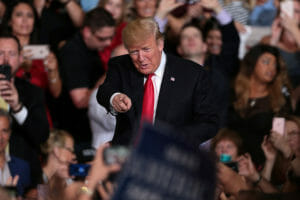
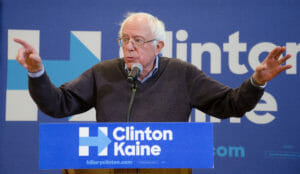
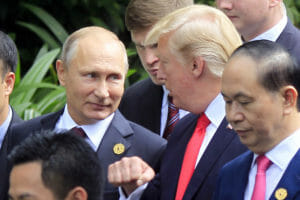
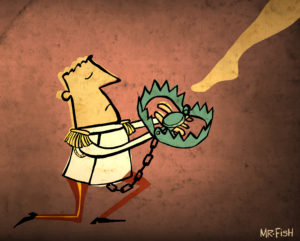


You need to be a supporter to comment.
There are currently no responses to this article.
Be the first to respond.